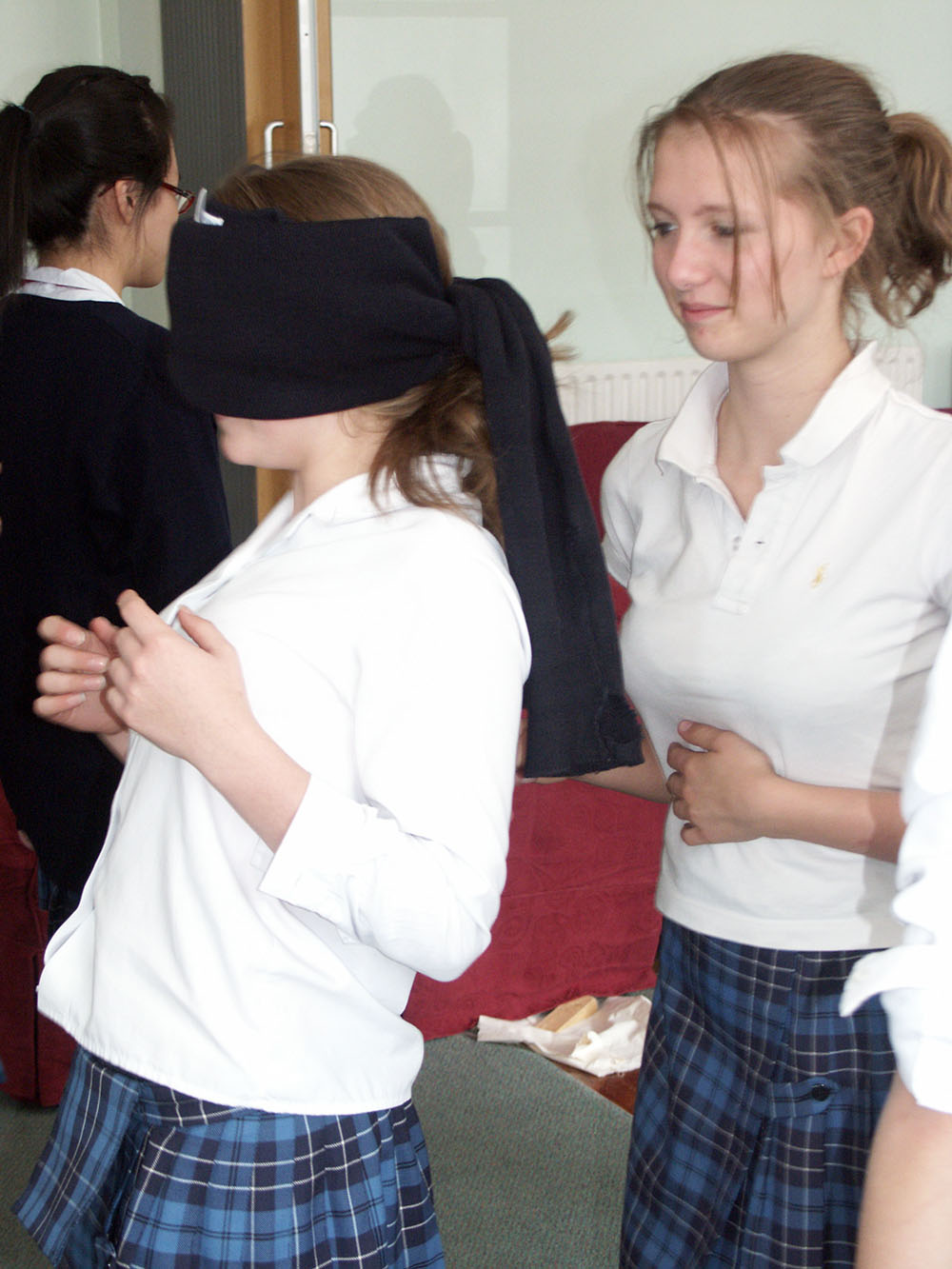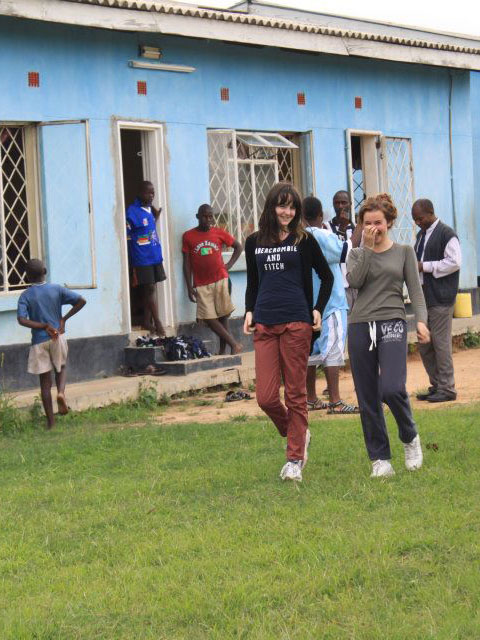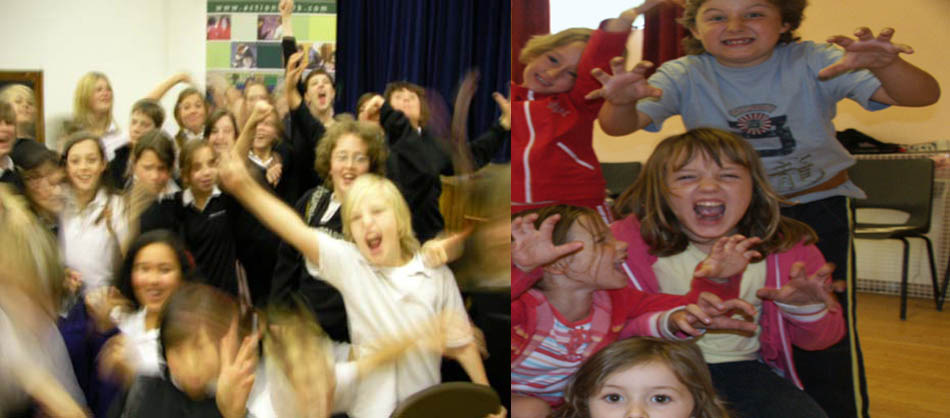What is the Peer Support Group?
The Actionwork® Peer Support Group is an ensemble of young people, primarily from the South west but with plans to spread across the country, campaigning for equality, freedom and rights of young people around the UK. This team is determined to deal with issues such as discrimination and prejudice through action and dialogue. With key skills like mediation, public speaking, active listening, debate training, empowerment and confidence that will be passed over from the Actionwork® team to our Peer Supporters. Our members will be able to communicate, counsel and inspire youth in their local areas to stand up, speak out, recognise their rights and drive for equality in all senses of the word within their communities and between generations.
Society has seen a huge increase in mental health issues amongst young people, with the Independent Newspaper reporting in February 2016 that:
"Rates of depression and anxiety among teenagers have increased by 70 per cent in the past 25 years."
And according to the Mental Health Foundation 20% of young people may experience a mental health problem in any given year. Suicide rates and drug use are high amongst young people and as such it is important that young people have a voice, so that they can speak out about issues that affect them. It is important that decisions made about the youth are made by the youth. So that issues like these can be dealt with effectively and efficiently.
No-one knows better what it’s like to grow up in this new age of technology, social media, advertisement pressure and culture clashes better than adolescents. Yet they are cast aside on the assumption of naivety, left voiceless with no opportunity to raise concerns or issues about their lives, unable to vote until that step into “adulthood” at 18. A baffling concept considering you can live on your own with a job and a family from 16.
As a group we will meet annually to discuss and decide what topics affect everyone the most and what we should subsequently get involved in. Events, meetings, campaigns and marches are all places the peer supporter might show they’re head at to support. They will also work together to support each other in whatever individual campaigns maybe on going.
Actionwork’s peer support group is determined to give young people a voice and the influence they deserve to create a childhood void of discrimination and prejudice. Because happy young people develop into a happy population.


The Director of Actionwork Dr Andy Hickson undertook a huge doctoral research study on youth participation. If you are interested in reading the whole thesis you can get it for free here
Youth at Actionwork®
Young Voice and Youth Action at Actionwork®
We have a variety of ways that young people can get involved with Actionwork® through our Peer Suport Group, our Volunteer Training Programme and our various drama groups. We also have young management groups where young people can have direct influence and management opportunities on Actionwork® events and programmes of work.
As educators, as adults, as researchers we are often evaluating the work of young people. If we switch it the other way round so that young people are given the opportunity to evaluate the work of adults, there are often calls for concern. Teachers, for example, frequently feel uncomfortable about this. Haggarty and Postlethwaite (2003) received feedback from some teachers who said that you need to be really careful when you start asking children what they think about their teacher because some children are not really objective sometimes. Comments such as these often came from teachers who had not engaged themselves in the research process; they did not value evidence from pupils that contradicted their own perception of situations in school (Haggarty and Postlethwaite, 2003). More recently, researchers have seen the need to record children’s own perspectives on the grounds that children are the most important source of evidence on how they experience their lives (Cowie and Jennifer, 2008. p. 95).
So why involve young people?
Research has shown that children and young people are far more likely to accept and respect a school’s behaviour and anti-bullying policy if they are involved in developing and writing it. This way they feel they have some kind of ownership of it. Involving and putting children and young people at the centre of the design, delivery and evaluation of a school’s anti-bullying initiative is far more likely to make the initiatives successful as they will be based on what young people want and need rather than on what adults think they want and need.
What is in it for schools?
Schools that have made an effort in consultation will have and engaged children and young people on many aspects of their behaviour and anti-bullying policies and procedures. They will notice:
- Improved relationships between teachers and students/pupils
- Improved standards of behaviour and attendance
- A reduction in bullying incidents and conflict across the whole school community and outside of school
- A reduction in teacher/staff time spent on bullying issues
- Happier and more respectful students and staff
- An increase in educational standards
- An increase in educational results
What can the local community gain?
Youth participation can help protect children and young people against bullying. The failure of adults to listen to, and act upon, children and young people’s concerns about bullying is a recurring theme. The literature is abound with examples of this. The local community will become more cohesive, people will be more open to sharing and divulging and bystanders will become witnesses.
What are some of the principles of children’s and young people’s participation?
1) Clear and open statements from governing bodies, Heads, Local Authorities and others working with young people so that their voices matter. We need to set aside specific budgets for this to happen.
2) Valuing young people's involvement.This should include respecting and trusting children and young people, making appropriate information/policies available for them, managing young people's expectations - be clear and consistent; what is allowed and what is not. Provide feedback of how young people are doing and any outcomes not only to those directly involved (such as a student council) but the whole school body. Last but not least, remember to celebrate achievements and highlight which outcomes have made a difference to the school as a whole and students individually.
Who should be involved?
3) All children and young people should have the chance to be involved in participation on issues and subjects that matter to them. Ensure that no one is excluded or prevented from getting involved on grounds of culture, race, religion, ability, age, ethnicity, gender, language, sexual orientation or the area in which they live.
4) Remember to review, reflect and guide the young people who are involved and to continually look for new areas of involvement. Ask yourself why some people do not get involved? Ask the young people the same question and see if your answers match.
Remember that young people can effectively deal with issues of bullying as long as thney have had the right training and guidance.
Do you need more help?
Actionwork® provide a whole series of peer support training and peer educators training in addition to helping schools get to grips with effective youth participation. The research suggests that anti-bullying training using the creative arts helps peer supporters feel more confident, empowered, satisfied with what they had achieved. They developed pride in helping other people, satisfaction at learning new skills, making new friends and alliances, and got a better understanding of people and a broader awareness of bullying and the world in general.
Booking Actionwork®
We are always looking for new ways to reach and involve young people, if you have any ideas then please contact us to discuss your needs.










